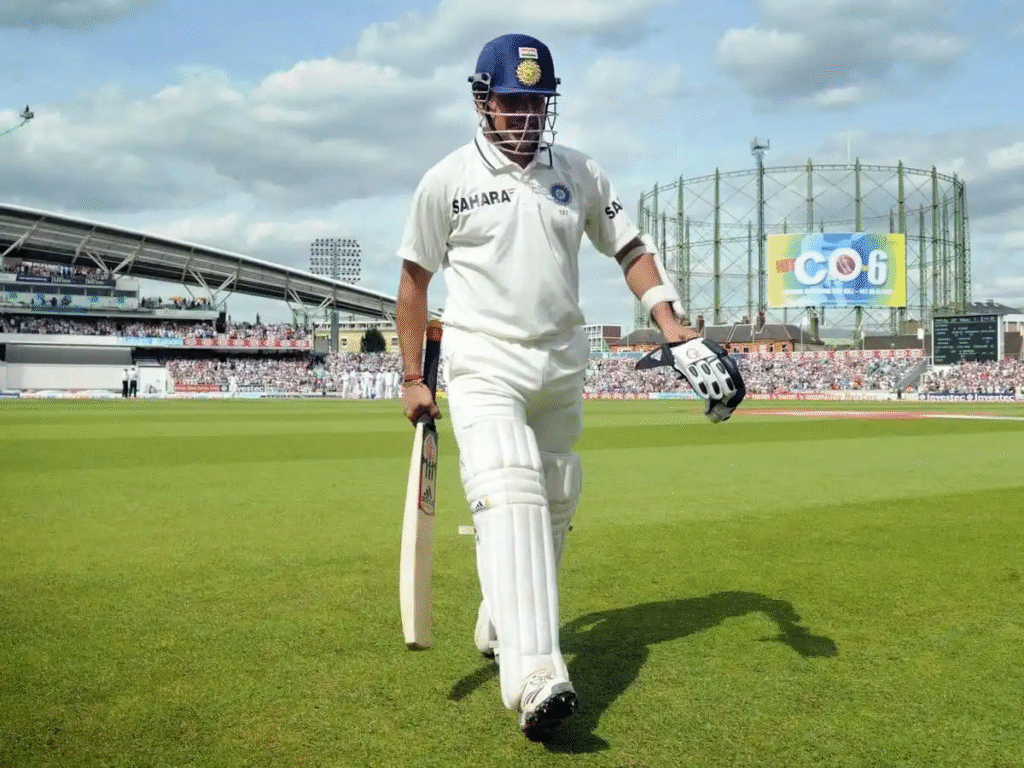For many people in India, cricket is more than just a sport; it’s a feeling. Nobody in India could be unfamiliar with the game. Teenagers are just as obsessed with the game as adults are. However, despite all of this, we may still be unaware of several facts and riddles.
Why not, then? In this blog, let’s solve all those puzzles. Here are five interesting but little-known cricket facts you should be aware of.
Sachin Tendulkar Was the First Player to Be Declared Out by a Third Umpire

Sachin Tendulkar was the first player the third umpire ruled out. During his 1992 tour of South Africa, TV umpire Karl Liebenberg declared Sachin Tendulkar to have been run out. One of the most important choices in history was made by Jonty Rhodes, who was in charge of executing the incident that occurred during the first test match. There was relief following this ruling, and it seemed that several sports technology developments were required to support impartial umpiring choices that favoured the players and the umpire.
Chris Gayle Is the Only Batsman to Hit a Six off the First Ball of a Test Match

Are you familiar with Chris Gayle, the well-known hard-hitting player and personality whose name appears on the 2011 and 2012 IPL Orange Cap winners list. Chris Gayle’s lovely and amazing talents and performance allowed him to strike the six off the first ball of a test match, something no other player in history has ever done. It also demonstrates that every player is different in some way and that no player is better or worse than any other.
Narendra Modi Stadium Is the Largest Stadium in the World

The largest cricket stadium in India in the globe is the Narendra Modi Cricket Stadium, formerly the Sardar Patel Stadium, which is situated in Ahmedabad, Gujarat. The stadium can accommodate about 1,32,000 spectators and has a pitch that is about 160 by 140 meters in size. Even the Melbourne Stadium in Australia, which can accommodate 100,000 people, is surpassed by it.
India is the Only Country in the World to lift 60,50, and 20 in the World Cup formats

Being the only nation in the world to host World Cups in formats like 60, 50, and 20 overs is a source of pride for our nation. In the sixty-over, fifty-over, and twenty-over forms, it has a history of winning World Cups. Under Kapil Dev’s leadership, India won its first World Cup in 1983. It won cricket’s first T20 World Cup in 2007. When M.S. Dhoni was captain, India won the World Cup for fifty overs in 2011 after a lengthy break. Similarly, in 2024, after a lengthy break, India won the T20 World Cup under Rohit Sharma’s captaincy.
Women’s Cricket Team Played the First Cricket World Cup in History

The phrase may make all the women who read this blog shiver. Women, not men, played in cricket’s first World Cup, which took place two years before males took to the pitch. The first Women’s World Cup was hosted by England in 1973. The West Indies won the Men’s Cricket World Cup, which was later held in England in 1975. This demonstrates how women’s cricket contributed to the creation of the World Cup custom.
FAQs about Interesting Facts about Cricket
1) What Is the Origin of Cricket?
Cricket originated in England in the sixteenth century, even though Indians are huge fans of the game. It quickly rose to prominence as the nation’s national sport in the eighteenth century.
2) What Is the Highest Team Total in a Test Match?
In a 1977 test match against India, Sri Lanka scored the highest team total of 952/6.
3) What Is the History of the Cricket Bat?
The history of cricket bats begins in the eighteenth century, when they changed from the hockey stick shape to the flat-fronted one that is used today.
4) Who holds the record for the highest individual score in a One Day International (ODI) match?
The record is held by India’s Rohit Sharma, who scored 264 runs against Sri Lanka in 2014. This continues to be the highest individual score in ODI cricket history.
5) Which cricketer has taken a hat-trick in all three formats of the game?
The only bowler to have taken hat-tricks in Tests, ODIs, and T20Is is Lasith Malinga of Sri Lanka, demonstrating his extraordinary versatility in all three formats.
READ MORE:

